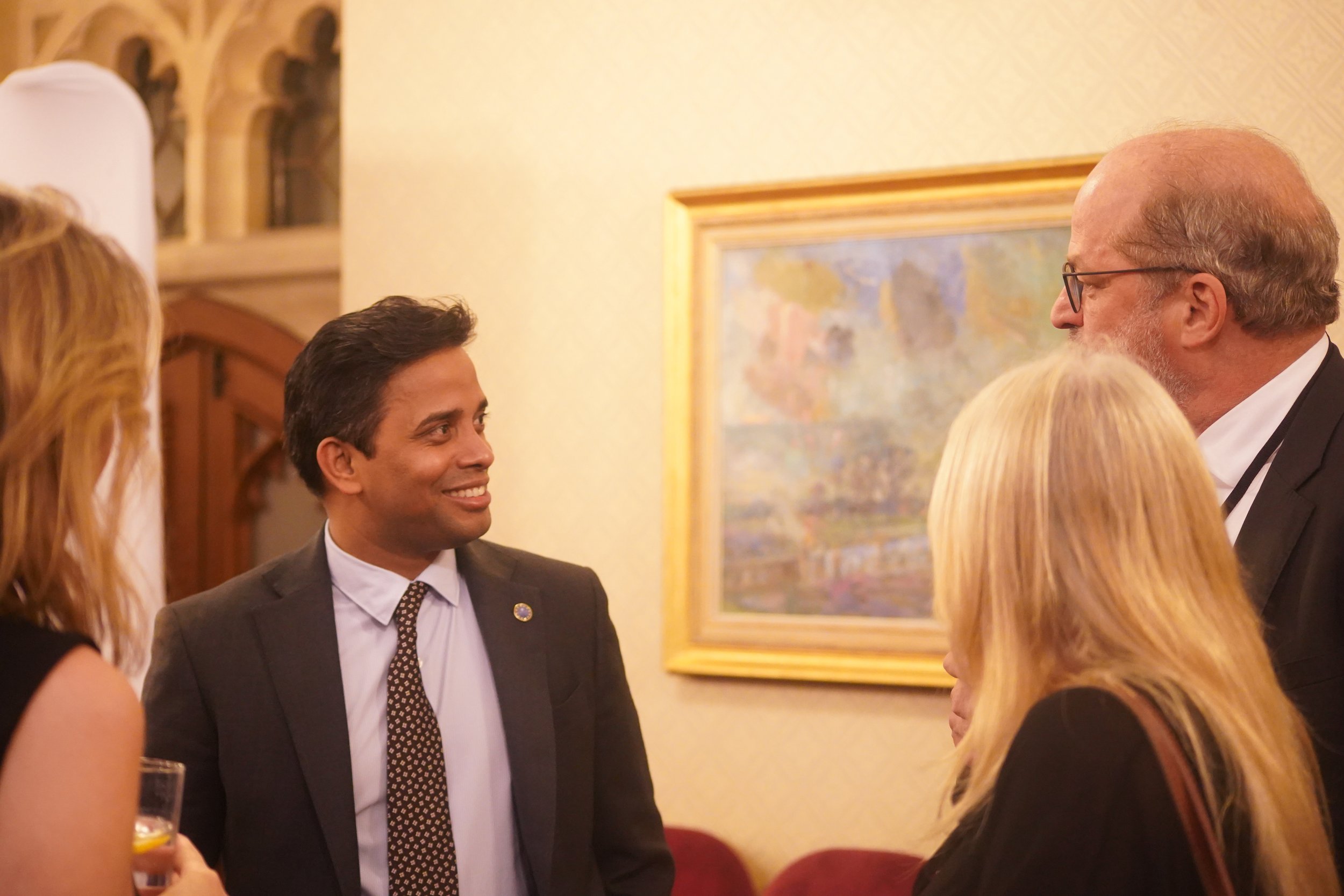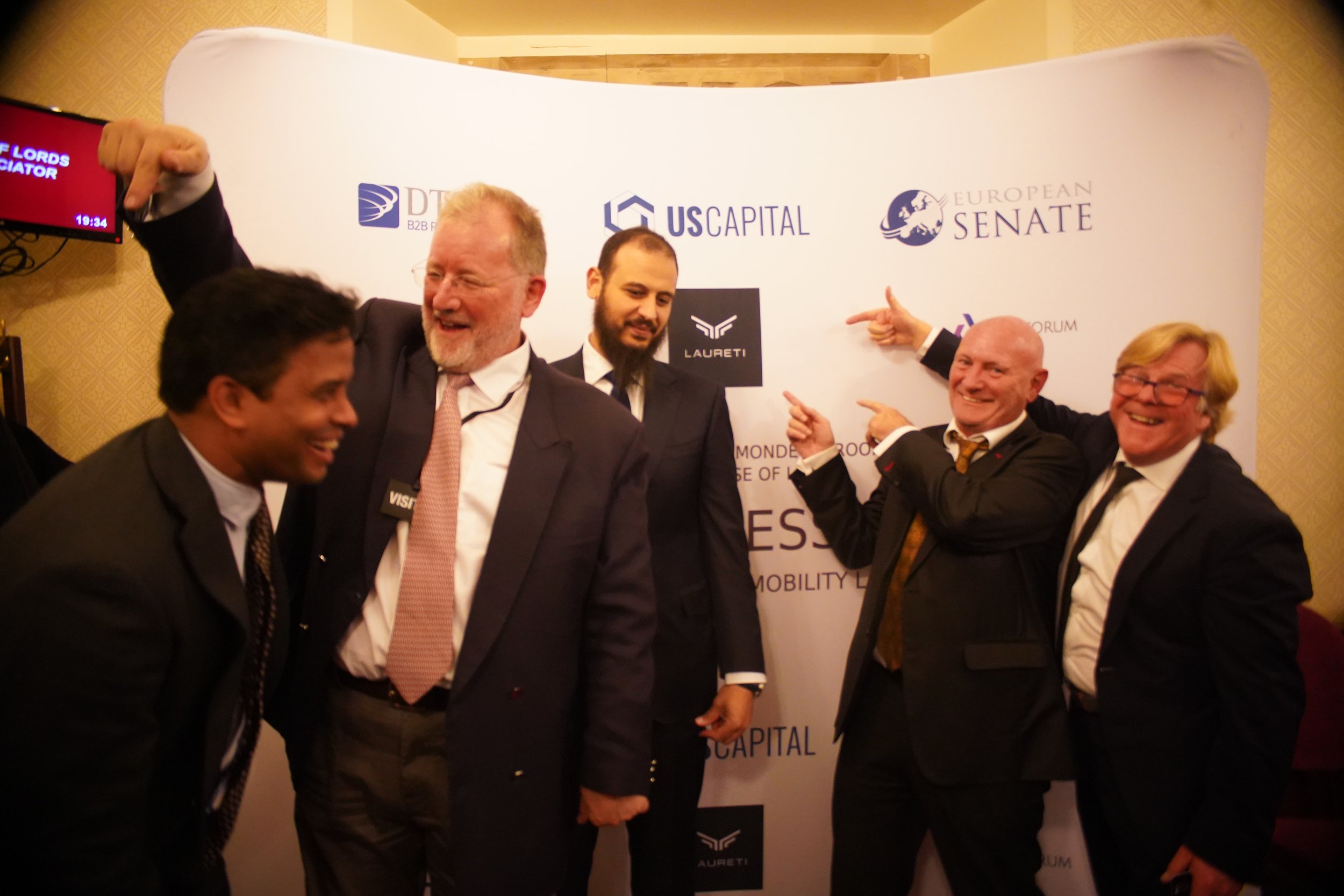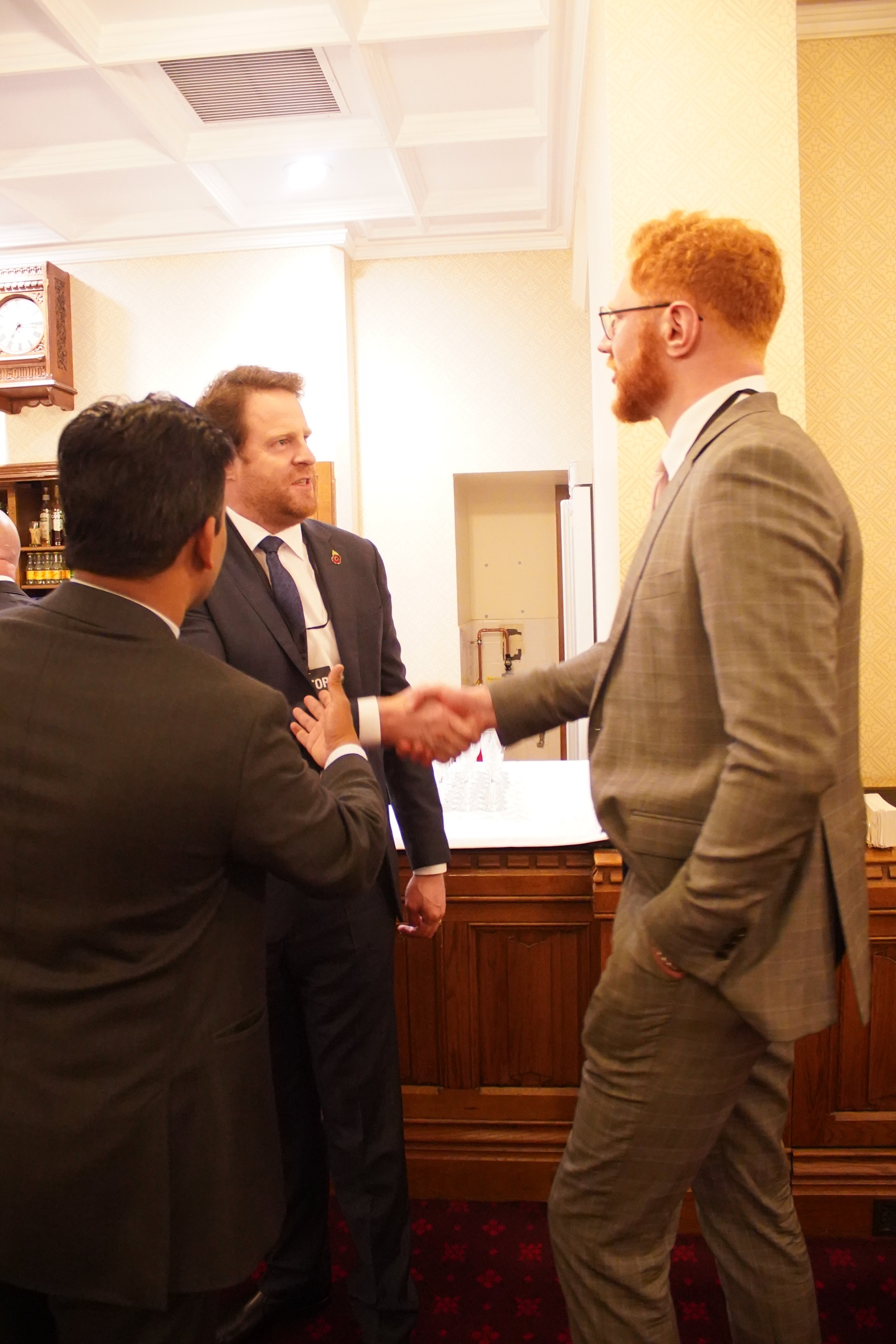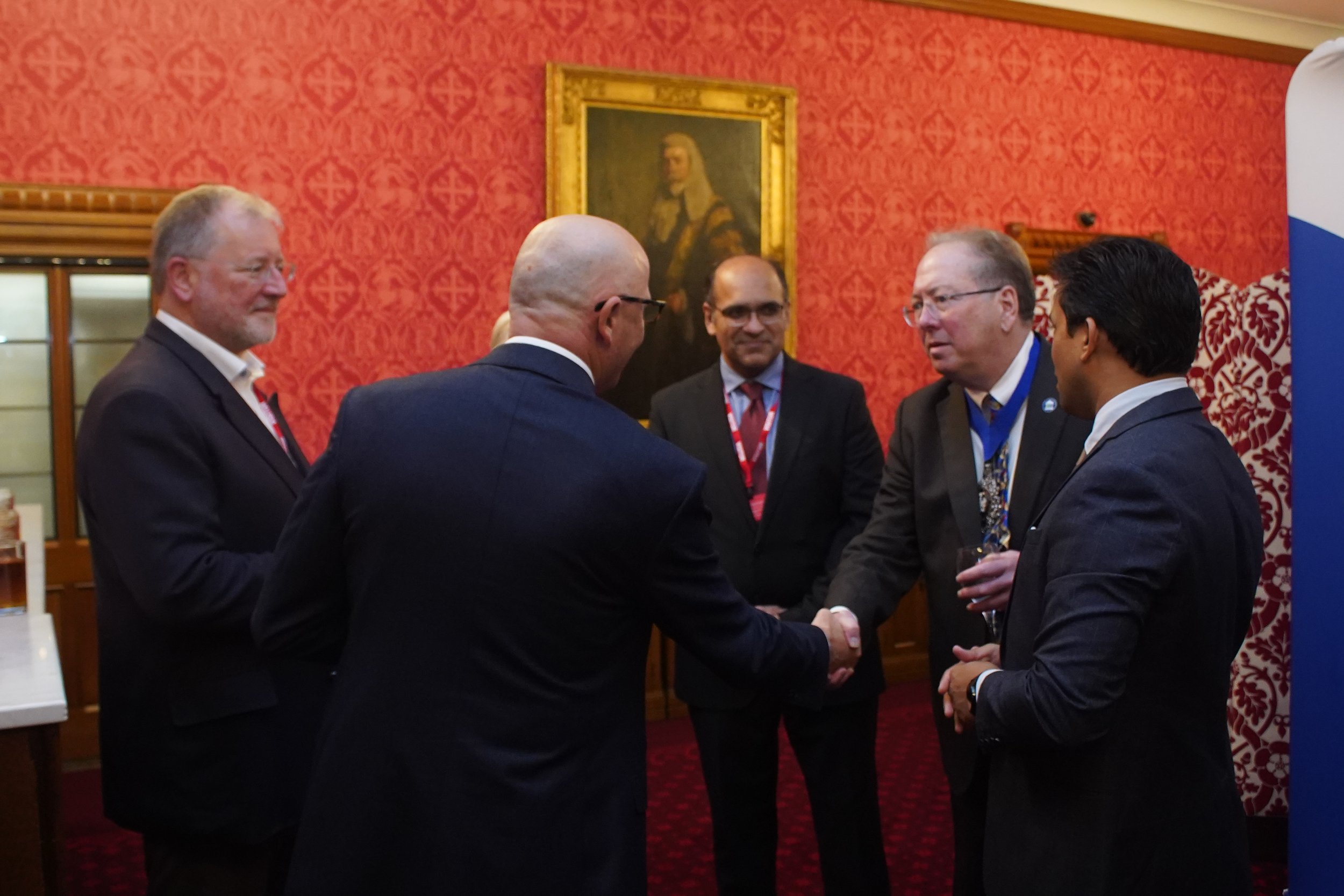
The Immutable Era of Physical AI
This Future Impact Report is Our Gift of Knowledge: Understanding the Future, Together.
If you’re feeling overwhelmed by the relentless pace of technology, you’re not alone. That’s precisely why my co-authors and I, alongside incredible contributors like a UK Shadow AI Minister and a former BMW R&D pioneer, spent months crafting this Physical AI Future Impact Report.
Typically, insights of this calibre are locked behind corporate paywalls, reserved for a privileged few. We believe that needs to change. The future belongs to all of us, and understanding it shouldn't be a luxury; rather, a matter of pursuit.
That’s why we are giving this report away, for free.
We see this not as a cost, but as our collective contribution. A form of charity in the form of knowledge. We are placing this precious understanding directly into your hands because an informed community is our best hope for building a future where technology elevates humanity, rather than leaving it behind.
Consider this your personal map to the next industrial revolution. Download it, read it, and let’s ensure this powerful technology works for your tomorrow.
To your empowered future,
Marcus Paleti
Co-Author, The Immutable Era of Physical AI
Helping Leaders Deliver Competitive Advantage Through Cutting-Edge Innovation Strategies
ENTREPRENUER, INNOVATOR & FUTURIST
PHILOSOPHY“Entrepreneurship is a privilege through which the world benefits from a meaningful change and a fulfillment of worthy causes. We can discover a greater version of ourselves individually when we dedicate everything to our truest beliefs. .”

C-Suite Reception
Dear entreprenuer,
Unlock your organization’s potential for transformative change by joining my monthly leadership breakfast gatherings. These meetings provide a valuable space for insightful discussions and vital support that will drive your transformation initiatives forward.
Marcus Paleti Spoke at the World Technology Congress at The House of Lords, UK
During the 2024 World Technology Congress at the House of Lords, thought leaders from government, business, and financial communities from 8 countries gathered to discuss the future of an AI-driven economy. Marcus Paleti shared the stage alongside some notable speakers, including the Lord Mayor of London, Michael Mainelli; Matt Armstrong Barnes, CTO of Hewlett Packard Enterprise; Lord Chris Holmes; Katie Prescott, Tech Business Editor of the Times; Viscount Camrose; Dimitrios Kokosioulis, Deputy CEO of Doha Bank; and Dominika Haberova, the director of World Technology Congress. They shared various perspectives and ideas on the future of AI and its implications.
-
The future of mobility will be digital, on-demand and connected. But will it continue to be private and secure?
Good afternoon Ladies and Gentlemen,
Those who spoke before me and those who will speak after me — carry a great level of authority in their respective fields on the topic of AI. That is why I am particularly grateful to have this opportunity where the perspective of a start-up like ours is also part of the agenda, especially, for having a platform where a least-talked-about topic is getting some oxygen. The areas I am referring to are mobility and transportation. The future of mobility will be digital, on-demand and connected. But will it continue to be private and secure?
Imagine you’re standing in front of a vault owned by someone you don't know much about. In the vault, they keep some of your most personal and sensitive data that goes beyond things like your location history for decades, or your shopping, music and entertainment preferences, -I am talking about things like sexual preferences, race, facial expressions, body weight, health information, medical conditions, some information about who you are related to and even your genetic information.
Do you care —--- that someone else owns that data set?
This room is full of professionals, highly recognised individuals and business people. My guess is —--you care.
If you don’t want your data in others’ possession, what would you pay to retain it for yourself?
Let’s say you own it. Would you be open to selling your data for unconditional use? Then, at what price? Let’s say you already sold it, what do you think it cost you?
Now I invite you to reflect on these questions as we take this journey to explore the role of Artificial Intelligence in the future of mobility.
It would serve a great purpose to share a bit about my back story and Laureti, the company I founded 5 years ago…
I am the founder of a global business called Laureti that is positioned to own the passenger experience economy. I found this business on a premise and a question “If you don’t have to drive a car, what would you do in it? At Laureti, we are building an industry-first ecosystem to make travel productive, connected and secure.
Over the past decade, we’ve seen a rapid decline in car ownership as the popularity of ride-hailing and on-demand services has soared. By the end of this decade, private ownership of cars will be eclipsed by on-demand services. This is a transitional period for the Automotive Industry, especially with the advancements in connected cars, which will increasingly focus less on the driver and more and more frequently on the passenger. Today, our research shows that 770 million hours are wasted globally each year on unproductive and disconnected travel. That is why at Laureti, through a software, hardware and service combination, we are introducing a car that is going to be your business lounge on the move. The software part is an AI-powered operating system that will provide a continuous, secure and portable experience which can be accessed on-demand without the burden of vehicle ownership. The technology we are building received a great deal of interest from other modes of transportation as well while we are still in the R&D stage. For those who are curious about what we are building, we will soon announce a showcase in London for you to see our vehicles and airline seat products. Updates will be available on our website.
In short, that’s the context and my relationship with AI. Now as we turn to the matter at hand….
100 years ago we had horses and carts, today we have cars and we are already well on our way to autonomous cars. With each new iteration of travel, we see a new industry and a new economy evolving at each step.
Today we are in the age of electrification. But most of the electric vehicle discussion is stuck at the architecture or fuel cells level, or endless debates on the range or the charging infrastructure, which is crucial but … it's only a corner piece of the full picture.
Cars you drive today have more sophisticated Advanced Driver Assistance Systems (ADAS). Artificial Intelligence and machine learning took the ADAS to a whole different level. It uses deep learning to analyse and understand large amounts of data from various sensors and cameras. Tesla alone has a dataset that covers over a million miles.
The modern car is more than a metal structure with wheels and motors. It embodies an increasing combination of various technologies as autonomy advances. Simply put, it is robotics, programmed hardware that takes you from A to B, mixed with AI used in manufacturing processes and quality control, Machine Learning, a subset of AI trained to process data through sensors and cameras, and IoT for various connectivity applications. To those who think this car is decades away, I point to companies like Zoox, who are already into level 4 testing.
The exciting part on the one hand is that I see the various applications of AI and automation shaping new ways to experience transportation and services - with the aim to make our daily travel more convenient. The worrying part on the other hand is that they use the data with no restrictions.
Traditionally in the auto sector, the margins are made at the sale of a car. But - the digitised car will extend those margins to every mile the car runs for the manufacturer. There is going to be a strong commercial motivation to keep hold of our personal data. I first wrote about the data issues in mobility back in 2020. I was a lone voice.
3 years later, the findings from a recent study by the Mozilla Foundation revealed some disturbing information on how car companies treat the security and safety of our data. And how privacy and consent are just an illusion. The report went on to explain how mental health apps, dating apps, and even adult-rated apps provide more transparency on data security than cars.
Certain manufacturers also use sensors, microphones, cameras - phones and other devices connected to network-connected cars, for their data collection and ownership. Now think about that for a minute. Your personal conversations inside a car could be the data they own.
About 63% of the car brands they reviewed either share or sell your personal sensitive data to third parties.
If you are in disbelief about the kind of data they collect and process, let me quote from Nissan USA's privacy notice on what information they collect and process, “sensitive personal information, including driver's license number, national or state identification number, citizenship status, immigration status, race, national origin, religious or philosophical beliefs, sexual orientation, sexual activity, precise geolocation, health diagnosis data, and genetic information.
This is not some intelligence agency or law enforcement that seeks this kind of data, it is a car. It may appear to be a matter of less urgent or less concern today. But we are surely headed towards a future where cars and modes of transport could be the new surveillance tools- if left unaddressed.
Let’s reminisce about the early years of social media, we rushed with excitement for Facebook accounts with no awareness or thought of how our data is treated. At that stage of infancy, the risk stayed at the device level. Tomorrow is a different scenario altogether - the risk will be at every step we take outside our homes.
As cars become more and more sophisticated computing devices, is it too wild to imagine a scenario, perhaps even now; using vehicles’ data and a person’s travel data, combining them with AI capabilities to that accurately generates a pattern where it predicts a person's location and time? Let's say three months from now targeting a specific day?
While I am not a developer myself, I know there is talent out there in DEF CON who could deliver this on the right budget. If you consider my reasoning to be fair -
Think About what would it mean to your own privacy and safety?
What would it mean for companies and their workforce or their customers?
What would it mean for the vulnerable?
What would it mean for governments?
Simply - what would it mean for parents waiting for their children to come home from school?
When we raise these topics with certain traditional industry groups, we are either faced with denial or a counter-challenge by simply saying things like, “You are overreacting.”
No, I am not.
It is not unfair to say that we, in the UK, are NOT leading the electric vehicle race. But when it comes to harnessing AI in mobility and transportation, I believe we have an opportunity. With the right approach, not only customers can be saved from future surveillance, but could also create an economic incentive to provide data security and privacy for which globally people are happy to pay an extra penny. You see, digital freedom is woven into the same fabric as the right to private life. I think all of our lives, work and businesses continue to benefit from that cultural, and socio-economic structure. Then, why lose it?
Now, what is the right approach? But exactly how can we fix this? I don’t have an answer to it. But what I know is that the solution is not in the hands of some tech genius. Rather it is a matter of business decision. It is a matter of policy decision.
I’d like to take a moment to thank Lord Holmes for raising the issue of data misuse. In a recent session in the House of Lords, Lord Holmes spoke about how the intellectual property and copyrights of writers, artists and other creatives are economically affected by Gen AI and “swallowed up with no respect, with no consent and with no remuneration”. The digitised car of tomorrow is soon coming to take you all for a ride - offering no respect, no consent and surely no remuneration.
Earlier this year, I was part of the panel at the World BI conference in Munich where I met with a head of software from a top automotive company. We continued our friendly debate about the data issues from the panel to the lunch table. The conversation went something like this.
I pointed out the findings of Mozilla research, and then they tried to shut me down saying there were flaws in the research methodology.
Then I presented data policies from 5 different manufacturers, some translated into English. They said he could not speak for others but their company has no intention of exploiting customer’s data though they still collect them. .
I then asked the most obvious question - why not remove those clauses from their data terms to avoid any future misuse from happening in the first place? That way you can assure users of their trust and confidence.
His reply stunned me.
He said “It's not an issue because nobody thinks about it, nobody looks into it, nobody asks for it”
Ladies and gentlemen, He was right - nobody is thinking about it, nobody is looking into it, nobody is asking for it.
That is why I am standing here talking about it. Thank you very much for your attention.
ABOUT MARCUSMarcus is recognized as a pioneer and a thought leader in the ongoing development of passenger-centric mobility solutions. As the Founder and CEO of Laureti Group, he has been instrumental in transforming the mobility paradigm to focus on productivity, efficiency, and accessibility. With 16 years of international entrepreneurial experience and a proven track record in managing senior executive teams, Marcus fosters a leadership and management approach that promotes an intuitive, open, and talent-nurturing culture.
Expertise
Businesses and startups seeking change through innovation strategies
Corporate Innovative project development
Discussing business, future mobility, AI, and innovation management.
For R&D collaborations & venture consulting
“How Does the Mobility of the Future Shape the Future You?” Marcus Paleti with Daisie Downer, presenter of BBC R3.
Technologies that cross-pollinate from other industries will redefine the future of transport and address the unspoken issues of carbon footprint in the auto industry.
Behind the scenes of building a business model of asset-free manufacturing.
Making the case for the emerging passenger experience economy.
Frequent keynote Speaker at the EU Mobility Council, London EV show & DACH Alliance
Keynote Speech at World BI, Munich
Keynote Speech at World Technology Congress, Fall Session 2023
“MaaS - The Emerging $1 T market”. Author

























Laureti emerged from a personal journey of resilience and vision, illustrated poignantly in the anthology by Sarah Ruddle, the author of Startup Mindset. Her narrative intricately weaves the stories of entrepreneurs who dared to dream and disrupt the status quo. At the heart of Laureti's founding story lies a commitment to innovation and an unwavering belief in the power of collaboration.
As showcased in Sarah Ruddle’s anthology, the stories of entrepreneurship serve as a beacon for aspiring entrepreneurs everywhere, illustrating that courage, dedication, and a vision for a better world can lead to impactful change. It invites us all to take our first steps, chase our dreams, and contribute to a future that is as sustainable as it is inspiring.
Listen up.
This podcast takes you right into the minds of some of the most interesting people contributing to the transition in global mobility today. Masters of Mobility Innovation highlights the technologies and business models that will cause a great impact in shaping the future of mobility. Amidst these technological revolutions and massively unimaginable movements, these episodes attempts to find an answer to what seems to be an important and daunting question humanity has always asked: What’s coming and how to make sense of this?















